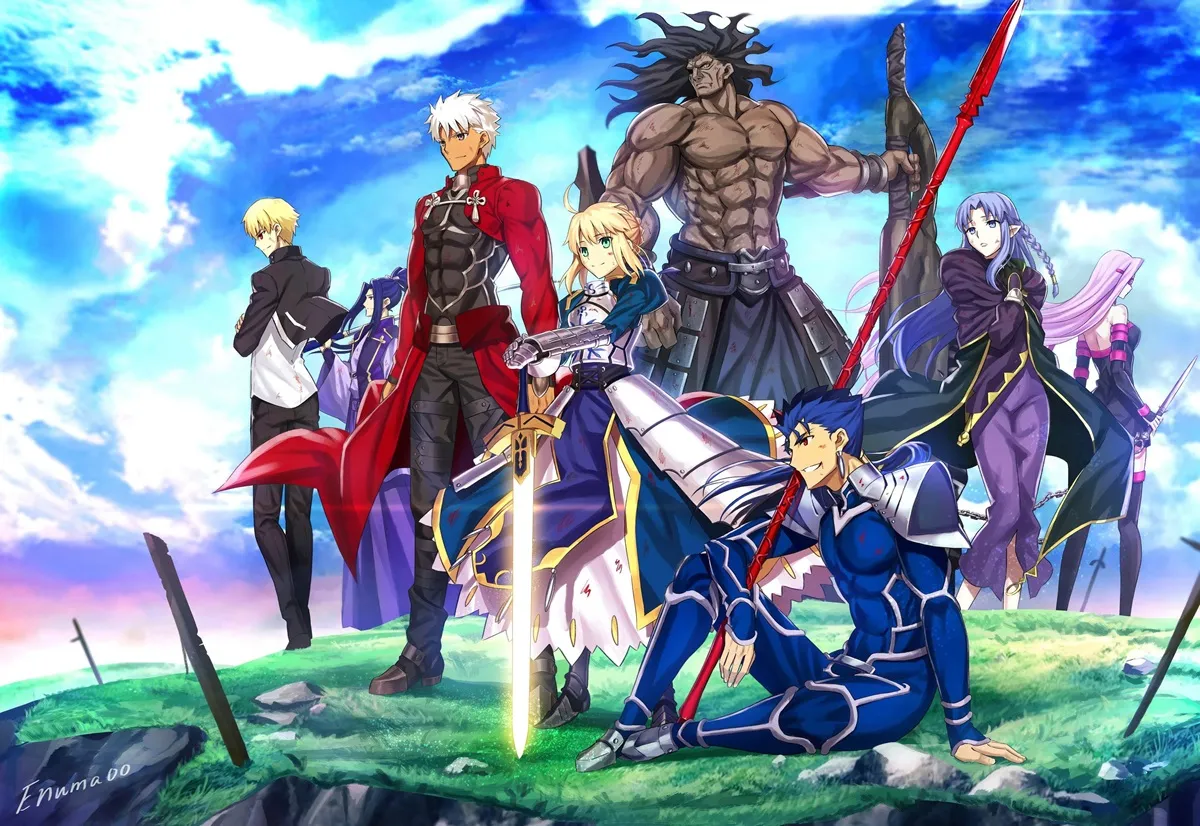Warning: The following article about the Fate franchise contains spoilers.
I am a huge fan of myths and legends. They are fantastical and wild. These tales of gods and monsters have always astounded me. The myths that many go to are the ones from Greek and Norse because they have entered the mainstream through several avenues. These are, of course, films, television, and video games. One series, though, that highlights the unsung heroes of myth is the Fate franchise.
The Fate franchise, in a nutshell, is about several mages going up against each other for the Holy Grail. This divine relic will give the winner of this melee one wish. This wish can be anything, and each mage isn’t alone in this tournament. They are gifted with a partner, a mythic hero, either from the past or, in rare cases, the future. These “Servants” are legendary warriors, and the Fate franchise has learned to capitalize on many aspects of myths and fables to build their own compelling multiverse.
Within the Fate franchise, several sections of mythology from around the world are brought to bombastic life. These mythological figures are given brand-new opportunities to shine and find new audiences. I found myself fascinated by characters I never knew about, like Karna, the “Son of the Sun God” from Indian mythology.
He makes an appearance in Fate/Apocrypha, and his depiction is incredible. And within the latest game in the franchise, Fate/Samurai Remnant, I found myself falling further in love with Asian heroes, including Zhou Yu (who many may know if they played the Dynasty Warriors games) and Miyamoto Musashi, one of the sword saints of Japan and Yamato Takeru, who, among many deeds, killed a brother, a king, and a god.
With animation studio Ufotable in charge for most of the franchise, the clashes between all these characters are suitably epic. There is so much weight and power behind each clash that it feels like witnessing battles of old. There are many fights of note, and one particular favorite of mine involves Gilgamesh and a mage who is destined to become a hero.
Related: Best Anime of 2023
Stories Close to Home
What makes Fate matter to me so much, though, is that it puts a spotlight on a particular pantheon of legends and myths. I am, of course, talking about the Irish heroes. Many say that the Irish are phenomenal storytellers, but do you know of any of our stories? They are epic, tragic, and phenomenally bloody. Within the Fate franchise, several of our mythical heroes are on show, along with heavy hitters like King Arthur and Heracles, mythical figures who get far more publicity.
Usually depicted with spears (the Irish have a thing for spears), our big guns of myth, Diarmuid Ua Duibhne and Cú Chulainn, are devastating forces within their respective series. Each falls to fates reminiscent of their legends, though. It’s a kind of poetry. My personal favorite is the legend of Cú Chulainn, who only died because he was magically deceived and then killed by his own weapon, the legendary Gáe Bulg.
Even then, he didn’t die for days, and to make sure he could still fight, he tied himself to a post so he wouldn’t fall. These two are the most prolific of the Irish pantheon of heroes, each having variants of themselves that show up throughout the novels, games, and series. There are close to a dozen Irish heroes within the Fate franchise, and I was so impressed by how they were depicted.
To put this in better context, in Ireland, we rarely see our heroes showcased. I cannot remember the last time we saw these mythic figures on our screens. We tell more stories about gangs and the church than we do about the mythical figures of our ancient past. And I will reiterate we have some seriously cool and messed up ones that would make you quake in your boots.
These stories are important, and they give people roots to draw upon. These stories have inspired so many generations, and I just wish that my own country was more interested in showing off these larger-than-life figures. After all, these were the first superheroes, uncompromising individuals who soared over us mere mortals and made us believe in something bigger than ourselves. They were heroes, they were demons, they were human, and their stories should always be told, whether it be through reading about their tales in literature or seeing them on shows like Fate.






Published: Feb 25, 2024 03:00 pm